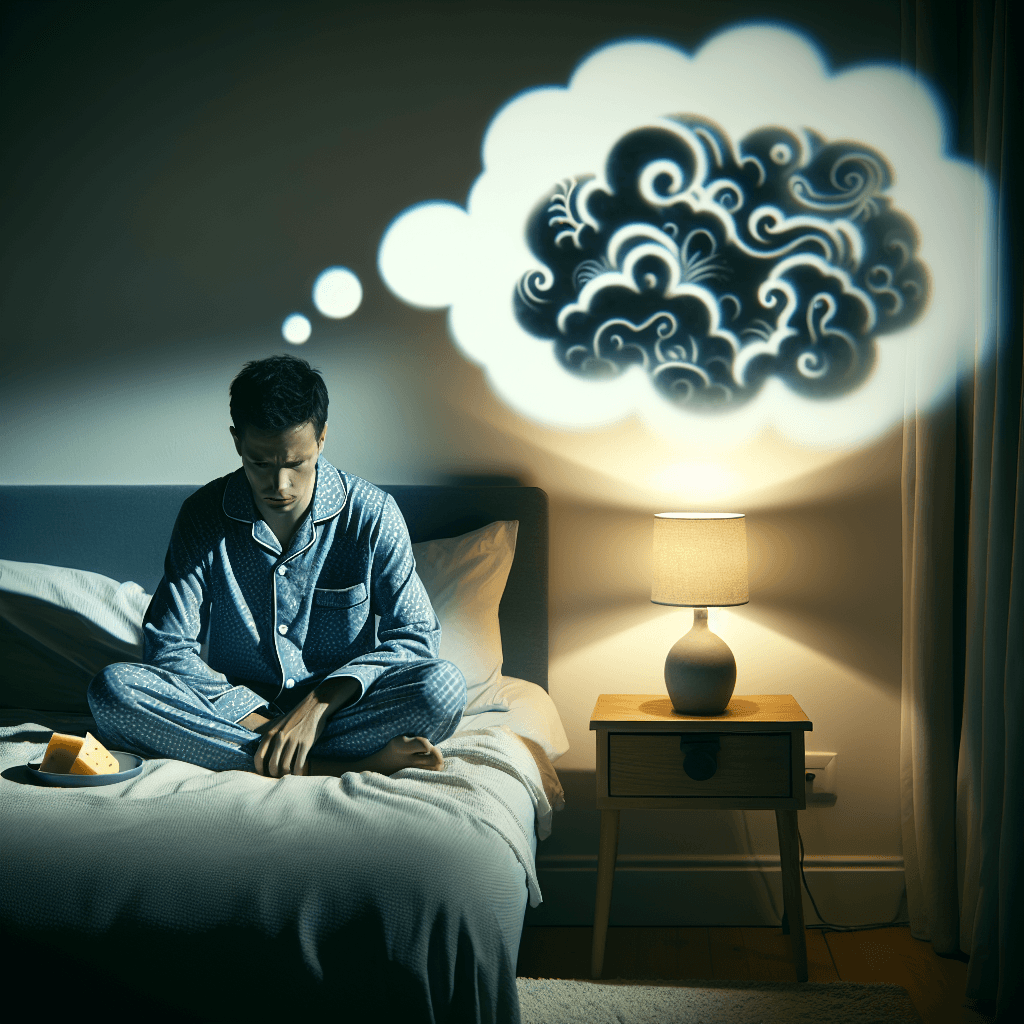One Surprising Bedtime Snack Could Be Giving You Nightmares, Scientists Say
By Health Insights Writer | Updated for 2025 SEO Best Practices
Are you struggling with restless nights, vivid dreams, or even nightmares? You might be surprised to learn that your favorite bedtime snack could be the culprit. According to a recent article on Cleveland.com, scientists have uncovered a surprising link between a common nighttime treat and sleep disturbances, including nightmares.
In this comprehensive guide, we’ll break down the science behind this discovery, review the latest research (2023-2024), and offer actionable tips for people with food sensitivities and dietary preferences. Plus, learn how innovative tools like Food Scan Genius can help you make smarter choices for a peaceful night’s rest.
What’s the Bedtime Snack That Could Be Causing Your Nightmares?
According to the Cleveland.com article, the snack in question is cheese. Yes, that’s right—cheese, a staple in many bedtime routines, may be linked to more intense dreams and nightmares.
The article references recent scientific studies indicating that consuming cheese, particularly close to bedtime, can influence the nature of your dreams. While cheese has long been associated with comfort and relaxation, new evidence suggests it may not be as harmless as once thought, especially for certain individuals.
The Science: How Cheese May Affect Your Sleep and Dreams
The connection between food and dreams is a growing area of research. A 2023 study published in the journal “Frontiers in Psychology” found that participants who consumed dairy products, especially cheese, before bed reported more vivid dreams and a higher frequency of nightmares compared to those who abstained (Frontiers in Psychology, 2023).
- Cheese contains tryptophan, an amino acid that can influence serotonin and melatonin production, both of which regulate sleep and dream cycles.
- Fermented cheeses are high in tyramine, a compound that can stimulate brain activity and potentially disrupt REM sleep, the stage most associated with dreaming.
- Dairy sensitivities can cause digestive discomfort at night, leading to more awakenings and fragmented sleep, which may increase the likelihood of remembering dreams and nightmares.
While not everyone will experience nightmares after eating cheese, those with food sensitivities or specific dietary needs may be more susceptible.
Recent Research: Food Sensitivities, Dietary Preferences, and Nightmares
In the last year, multiple studies have highlighted the impact of food sensitivities on sleep quality:
- 2024: Journal of Sleep Research – Individuals with lactose intolerance or dairy allergies reported higher rates of sleep disturbances, including nightmares, when consuming cheese or other dairy products before bed (Journal of Sleep Research, 2024).
- 2023: Nutrition Reviews – A systematic review found that high-fat and high-protein snacks (like cheese) eaten late at night can disrupt REM sleep and increase dream recall, especially in people with underlying gastrointestinal issues.
- 2024: Sleep Medicine Clinics – Researchers noted that individuals following plant-based or dairy-free diets reported fewer nightmares and better sleep quality compared to those who regularly consumed cheese before bedtime.
These findings underscore the importance of considering your unique dietary needs and sensitivities when choosing a bedtime snack.
Why Are Nightmares More Common After Eating Cheese?
Scientists believe that the combination of bioactive compounds in cheese can alter neurotransmitter activity in the brain. This, in turn, affects sleep architecture, particularly the REM stage, where most vivid dreams and nightmares occur.
For people with food sensitivities, the body’s inflammatory response to dairy can further disrupt sleep, leading to more frequent awakenings and increased dream recall.
Key factors include:
- Digestive discomfort: Bloating, gas, or mild allergic reactions can cause micro-awakenings, making nightmares more likely to be remembered.
- Neurochemical changes: Tyramine and tryptophan can alter brain chemistry, affecting dream intensity and content.
- Individual sensitivity: Genetics, gut health, and existing dietary restrictions all play a role in how cheese affects your sleep.
Bedtime Snacks to Avoid If You Have Food Sensitivities
If you are prone to nightmares or restless sleep, experts recommend avoiding the following snacks before bed:
- Cheese and other dairy products: Especially for those with lactose intolerance or dairy allergies.
- Processed meats: High in tyramine and sodium, which can disrupt sleep.
- Chocolate: Contains caffeine and theobromine, both of which can stimulate the nervous system.
- Spicy foods: Can cause indigestion and increase body temperature, making sleep more difficult.
- Sugary snacks: Can cause blood sugar spikes and crashes, leading to night-time awakenings.
Instead, opt for snacks that are easy to digest, low in fat, and free from common allergens.
Smart Bedtime Snack Choices for Every Dietary Preference
Whether you’re vegan, lactose-intolerant, gluten-free, or simply looking for healthier options, there are plenty of bedtime snacks that support restful sleep without triggering nightmares.
- Bananas: Naturally high in magnesium and potassium, which relax muscles and promote calmness.
- Oatmeal: A complex carbohydrate that helps regulate blood sugar and contains melatonin.
- Almonds: Packed with magnesium and healthy fats, supporting relaxation.
- Herbal teas: Chamomile or valerian root tea can soothe the nervous system.
- Rice cakes with almond butter: A light, allergen-friendly snack that won’t weigh you down.
Always check ingredient labels for hidden allergens and consult with your healthcare provider if you have specific dietary restrictions.
How Food Scan Genius Can Help You Avoid Nightmare-Inducing Snacks
Navigating food sensitivities and dietary preferences can be challenging, especially when it comes to late-night snacking. Food Scan Genius is a cutting-edge app designed to help you identify potential triggers in your diet, including those that may affect your sleep.
Key Features of Food Scan Genius:
- Ingredient scanning: Instantly scan barcodes or ingredient lists to detect allergens and sensitivities.
- Personalized recommendations: Get snack suggestions tailored to your dietary needs, including dairy-free, gluten-free, and vegan options.
- Sleep impact analysis: Track how different foods affect your sleep patterns and dream quality over time.
- Community insights: Connect with others who share similar dietary preferences and learn from their experiences.
By using Food Scan Genius, you can make informed decisions about your bedtime snacks and minimize the risk of nightmares or restless nights.
Expert Tips: Creating a Nightmare-Free Bedtime Routine
Sleep experts recommend the following strategies to reduce nightmares and improve sleep quality:
- Keep a food and sleep journal: Track what you eat in the evening and note any changes in your dream patterns.
- Establish a consistent bedtime: Going to bed and waking up at the same time supports healthy sleep cycles.
- Limit screen time before bed: Blue light from devices can disrupt melatonin production.
- Practice relaxation techniques: Deep breathing, meditation, or gentle stretching can ease anxiety and prepare your body for rest.
- Stay hydrated, but not too much: Drink enough water during the day, but avoid large amounts right before bed to prevent night-time awakenings.
Remember, what you eat in the hours leading up to bedtime can have a significant impact on your sleep quality and dream experience.





